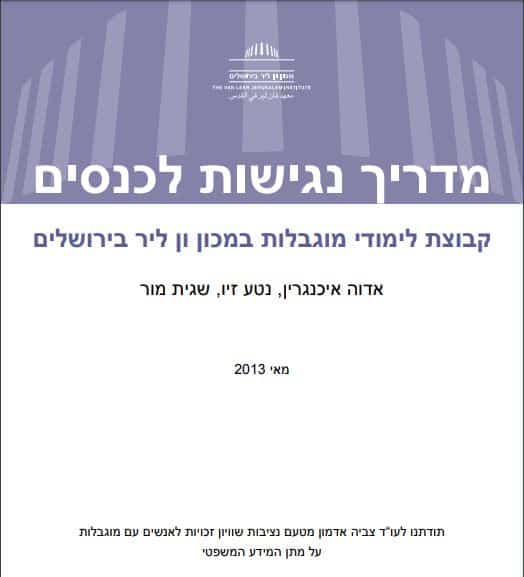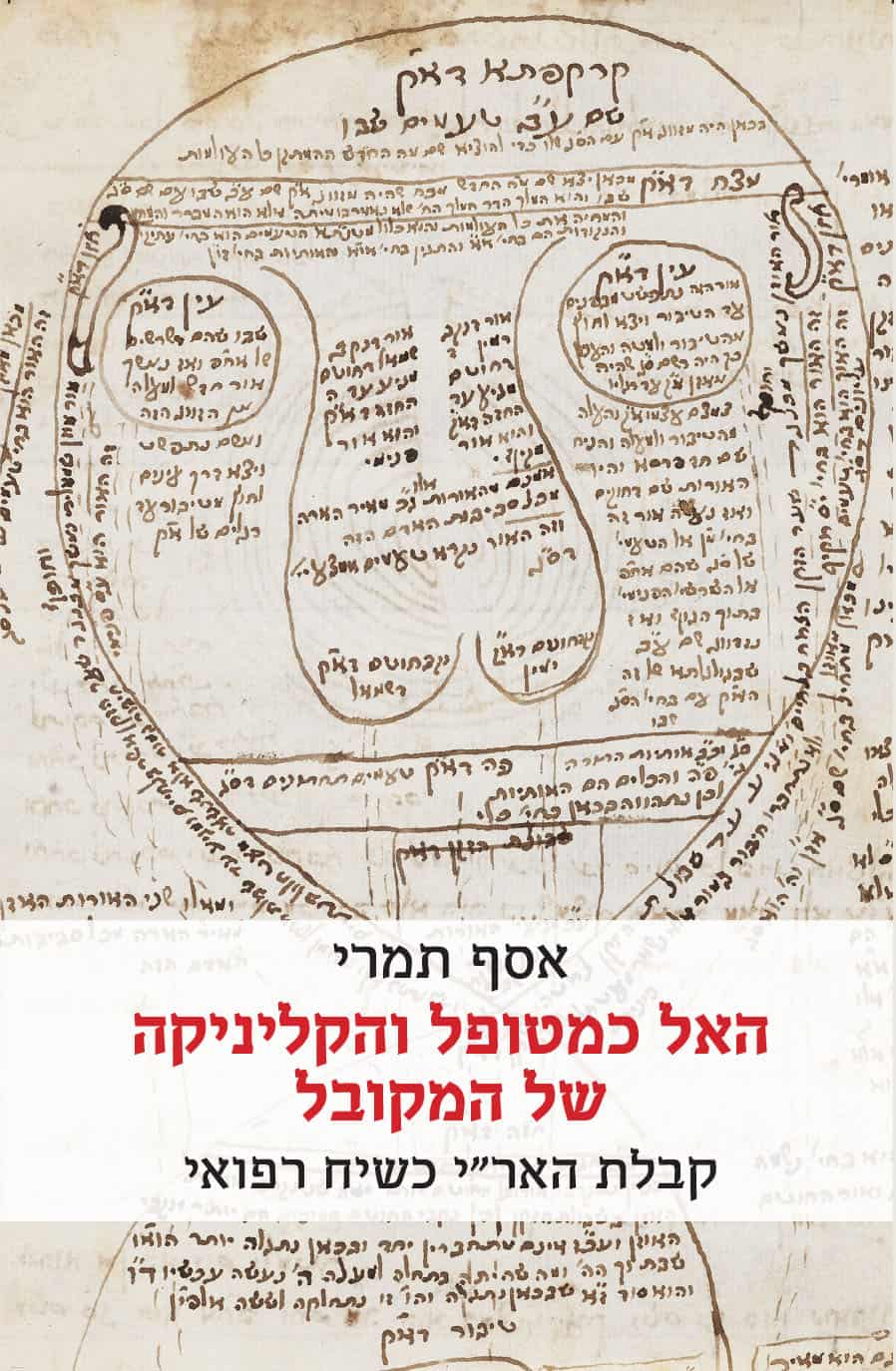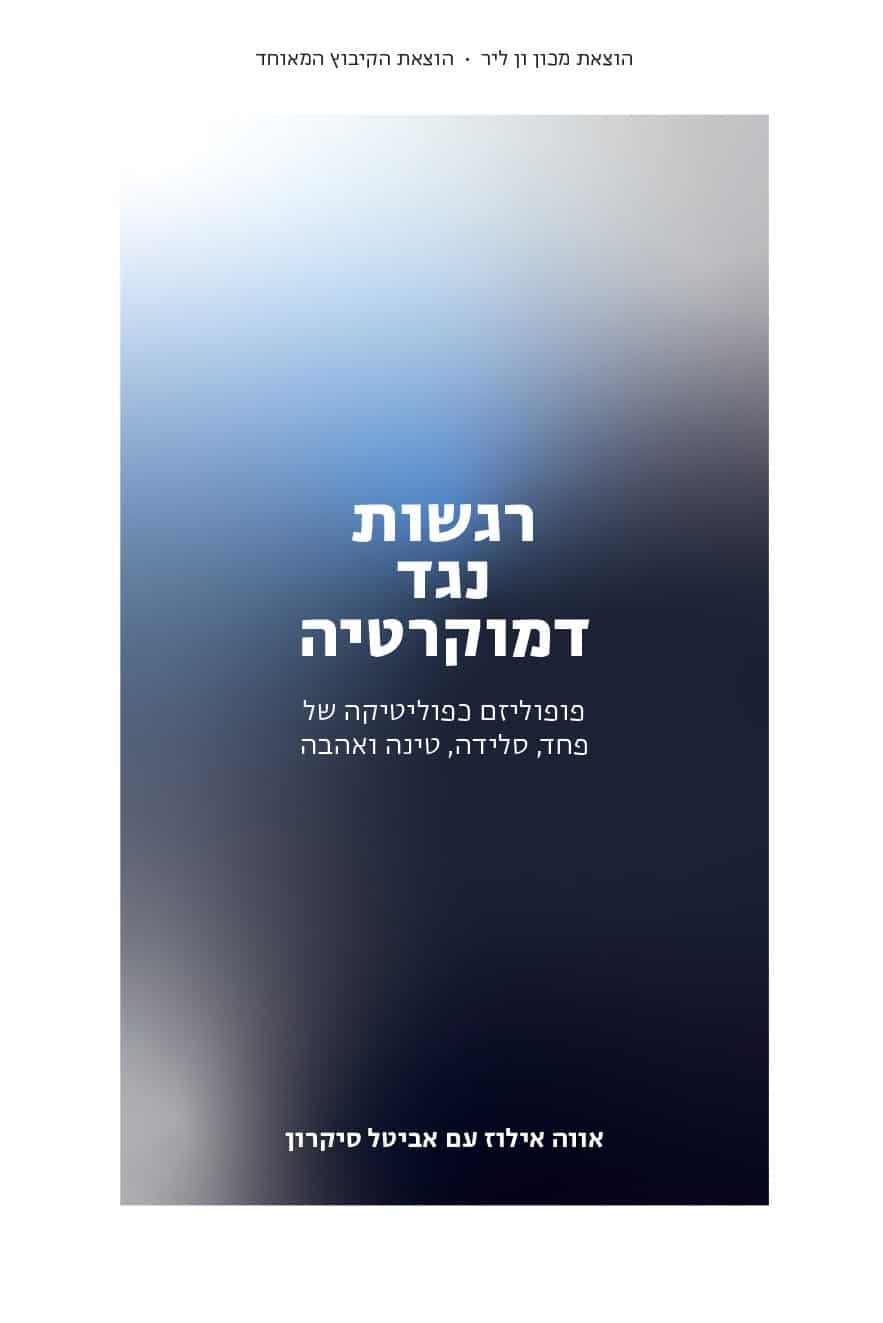Making Conferences Accessible: A Guide
| By | Adva Eichengreen, Neta Ziv, Sagit Mor
|
| Publisher | Van Leer Institute Press |
| Language | Hebrew |
| Year of Publication | 2013 |
The importance of providing accessibility at academic, professional, and other conferences derives from the centrality of the right to accessibility as a basic human right for people with disabilities. This right has been recognized by international law as part of the United Nations Convention on the Rights of Persons with Disabilities, 2006, and it has been anchored in local legislation as part of the Israeli "Law of Equal Rights for Persons with a Disability, 1998". Accessibility for the various types of needs, apart from being a moral and legal obligation, provides a clear social statement that people with disabilities are an inseparable part of the target audience for every public, academic, or professional event and that their needs are an integral part of the considerations of the organizers of the conference, just like the other professional and academic needs of the target audience.
It is estimated that people with disabilities constitute about 10 percent to 25 percent of the population. Many additional people with a variety of needs also benefit from accessibility. These include individuals with a slight decline in hearing or sight, people whose native tongue is not Hebrew, people who are assisted by a visual information channel, pregnant women, and parents of infants.
This is the first full guide in Israel to making conferences accessible and it offers a comprehensive and progressive approach. It was written following the first international conference in Israel on critical disability studies in December 2010.
The guide is presented in PDF format.




